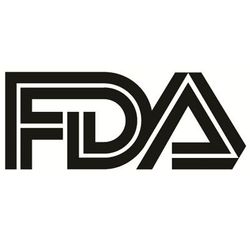
OR WAIT null SECS
Neutrophil Activity, Immune Imbalance May Drive Biologic Resistance in Psoriasis
These findings were the result of a new analysis of the inflammatory characteristics associated with the efficacy sustenance of biologic medications for psoriasis.
Increases in neutrophil activity as well as imbalances in the innate epidermal immune responses are important for early resistance to biologic medications in those living with severe psoriasis, new findings suggest, and this is especially true in association with obesity.1
These data were the conclusion of new research authored in part by Hee Joo Kim, MD, PhD, from the Department of Dermatology at Gachon University College of Medicine’s Gil Medical Center in South Korea. Kim and colleagues, in carrying out this study, sought to explore which clinical characteristics showed a link with resistance to biologics for severe psoriasis.
The team highlighted that despite the widely acknowledged efficacy of biologics targeting such molecules as interleukin (IL)-17 and IL-23, there had still been a significant number of treatment-resistant individuals.
“Optimized disease management and efficient use of medical resources requires appropriate anticipation of therapeutic efficacy and sustainability,” Kim and colleagues wrote.1,2 “Although many epidemiologic studies have analyzed the persistence of biologics in psoriasis, the inflammatory characteristics related to sustained efficacy of biologics remain unexplored.”
The investigative team involved a set of individuals in the age range of 18 years and older who visited the Gachon University Gil Medical Center dermatology clinic in the period between January 2012 - December 2022. They used a cross-sectional trial design, focusing their research on study subjects who had severe plaque-type psoriasis.
This state was defined by body surface area involvement shown to be greater than 10% and a Psoriasis Area and Severity Index (PASI) score that exceeded 10, despite undergoing 3 months of conventional treatment at least using methotrexate, cyclosporine, phototherapy, and acitretin. Those included as participants had also been given biologic medications for a minimum of 24 months.
There were 87 subjects with a mean age of 42.2 years included in the analysis, of whom 24 were reported as female and 63 as male. The investigators carried out their analysis of the available data between December 2023 - September 2024. In their spatial transcriptomics (ST) analysis, the investigators used 4-mm punch biopsies obtained via psoriatic lesions of 6 biologic-naive individuals.
Among the 87 participants, the investigative team found that 18.4% required a switch to an alternative biologic drug, resulting from an early loss of therapeutic efficacy. When assessing the clinically significant predictors of resistance to treatment, the only 1 identified was being overweight given a body mass index (BMI) >25. This was noted by the team as associated with a markedly raised risk (odds ratio, 17.3; 95% CI, 3.2-434.6; P = .009).
Other factors, such as the duration of disease prior to beginning treatment using biologics and initial disease severity before starting such medications, were shown not to have differed between subjects who were found to be treatment-resistant and subjects who maintained a sustained response.
Using the spatial transcriptomics pathway analyses, the investigators found enriched innate immune signaling and Th17/IL-17 pathway activation, adding that there was an increased expression of genes linked to innate immunity and neutrophil activity primarily within the epidermis. The research team further noted observations of enrichment in ligand-receptor interactions in pathways related to antimicrobial peptides, IL-36 cytokines, and tumor necrosis factor (TNF) signaling.
In addition, the investigators’ immunofluorescence analysis led to confirmation of elevated protein expression of lipocalin 2, S100A8/A9, IL-36γ, IL-36α, IL-1RA, and TNF-related apoptosis-inducing ligand (TRAIL) within the epidermis among participants.
“These multimodal integrative data on gene expression and pathogenic features collectively underscore the role of imbalanced epidermal innate immune responses in early resistance to biologic therapy in patients with obesity with severe psoriasis, with neutrophils emerging as a key mediator in the process,” they concluded.1
References
Kim HJ, Lee E, Jung Y. Association of Obesity and Innate Immune Markers With Resistance to Biologic Therapy in Psoriasis. JAMA Dermatol. Published online April 02, 2025. doi:10.1001/jamadermatol.2025.0288.
Shin JO, Shin BS, Bae KN, et al. Review of the reasons for and effectiveness of switching biologics for psoriasis treatment in Korea. Indian J Dermatol Venereol Leprol. 2023;89(6):928. doi:10.25259/IJDVL_308_2022.


